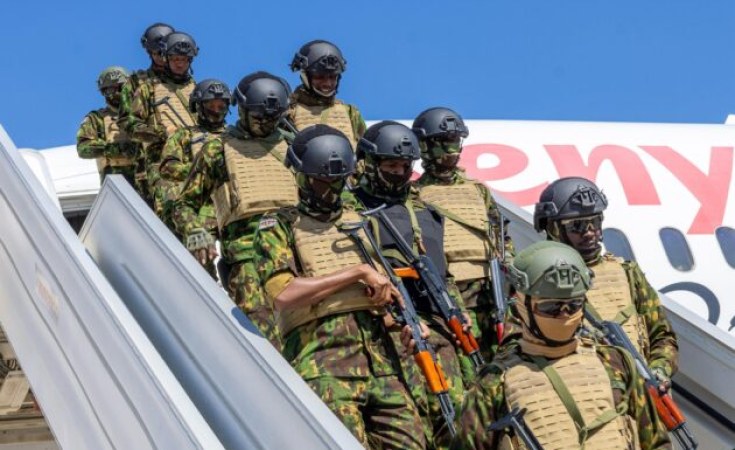Kenya’s police deployment to Haiti is under growing scrutiny as the Caribbean nation grapples with a severe security and humanitarian crisis. The Haitian government has declared a three-month state of emergency in the West, Artibonite, and Center departments following a surge in gang violence that has devastated communities and crippled food production.
The announcement, made over the weekend, comes amid mounting casualties and kidnappings. According to the United Nations human rights office, between October 2024 and June 2025, more than 1,000 people were killed, over 200 injured, and at least 620 kidnapped in the affected regions. The violence has targeted Haiti’s agricultural heartland, known as the country’s rice basket, where armed gangs have displaced farmers, destroyed villages, and disrupted food supply chains.
Government officials warn that the attacks have worsened an already dire agricultural and food crisis, forcing many residents to depend on humanitarian aid as shortages drive prices higher.
In a plea for peace, Pope Leo urged all parties to release hostages and called for “concrete support of the international community in creating social and institutional conditions that will allow Haitians to live in peace.”
The deteriorating situation poses a challenge to the UN-backed Multinational Security Support (MSS) mission, where Kenyan police are playing a frontline role. Rights groups have cautioned that continued violence risks undermining the progress made since the mission’s launch.
Despite the grim outlook, MSS Spokesperson Jack Ombaka expressed optimism, noting that Kenyan police, working alongside Haitian security forces, have intensified operations in key hotspots within the capital, Port-au-Prince. “We have made significant progress in curbing gang activity, and our commitment to restoring order remains firm,” Ombaka said.
Kenya’s involvement in Haiti marks a significant moment in its international peacekeeping efforts, but the scale of Haiti’s security crisis underscores the need for broader global assistance. As gangs tighten their grip on vital agricultural areas and humanitarian needs escalate, international pressure is building for coordinated action to stabilize the nation and support long-term recovery.
For now, the mission’s success hinges on sustained cooperation between Haitian forces, Kenyan police, and the wider international community, as the country navigates one of its most turbulent periods in recent history.

